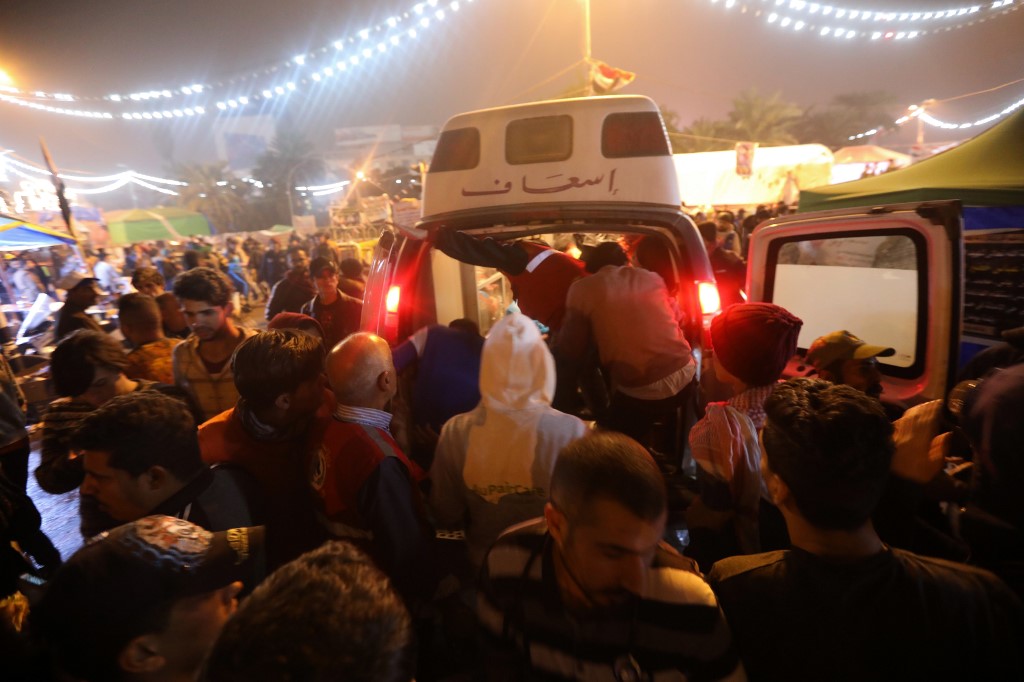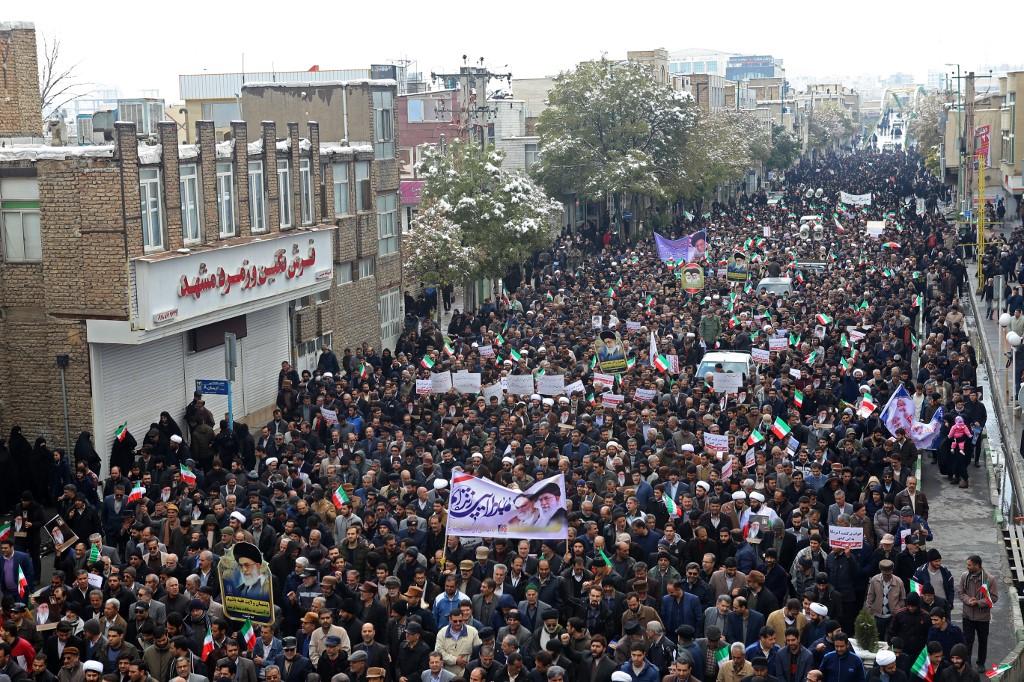RIYADH: The killing of dozens of Iraqi protesters in Baghdad earlier this month was carried out by unidentified armed forces in cooperation with Iraqi national and local security forces, Human Rights Watch said Monday.
Between 29 and 80 people were killed and 137 injured when gunmen opened fire on a crowd gathered in Al-Khilani Square on Dec. 6, the organization said in a report into the attack.
The killings came amid a brutal crackdown against widespread protests across southern Iraq that have left more than 500 dead.
The high death tolls have been blamed on a brutal response by government security forces but also the involvement of armed groups. Iran has also been blamed for playing a hand in organizing a response to the protests.
“Police and military forces withdrew as the unidentified militia, some in uniforms, began shooting,” the Human Rights Watch report said.
Witnesses said about 1,000 people were gathered in the square and a nearby five-story parking garage that had been used as a hub for the protests when seven pickup trucks sped into the area.
“As the vehicles drove through the square slowly, gunmen in plain black uniforms and civilian dress opened fire with AK-47s and PK machine guns above the protesters, before lowering and firing directly at them,” the report said.
The attackers then moved on to the building known as Al-Senak garage. Men carrying machetes and sticks stormed the building before more arrived with guns and opened fire inside.
“Five of my friends are still missing, and I don’t know if they are dead or were detained,” one of the witnesses said. “I saw the armed men loading bodies into their buses and trucks an hour before they drove away.”
The witnesses said about two dozen Federal Police and Iraqi Security Forces, who were manning two checkpoints in the square leave as the gunmen arrived.
Nine hours later, at 4:30 a.m. on Dec. 7, the armed men left and the security forces returned within minutes.
“There’s very strong evidence the Iraqi authorities outsourced their dirty work against protesters, leaving just as the killings commenced and returning to assist with arrests,” Sarah Leah Whitson, Middle East director at Human Rights Watch, said. “If they stood by and allowed these armed men to attack protesters or carried out the murders themselves, the Iraqi government forces will be responsible.”
“The authorities, it seems, even allowed the lights to go out, blanketing the protesters in darkness with only flying bullets to light up the sky.”
The report said that videos show some people detained during the violence being released and claiming they had been abused. A police officer tells them that they had been held by Kata’ib Hezbollah, an armed group in the Popular Mobilization Forces linked to Iran.
Human Rights Watch called on Iran, along with the US and UK, to stop providing military support to the Iraqi government until the killings of protesters stop.




